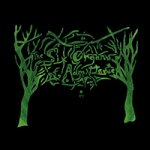
Six Organs of Admittance RTZ
(Drag City )
In a 2003 interview for a Wire magazine piece in which David Keenan ostensibly coins the term “New Weird America” while depicting its denizens as aesthetically disparate and largely indefinable, Ben Chasny paints his vision of the amorphous movement with broad, toxic strokes: “a web of inspiration and beauty that will bypass all of the mundane aspects of whatever we call art, like museums and galleries and eBay and bullshit record collecting.” Perhaps “bypass” was too strong a word: the combo of prolific outputs and material necessity has forced Chasny (one man, Six Organs of Admittance,) and the good majority of his out-folk contemporaries to have their limited-run LPs and hand-made CD-Rs wrapped up in the “bullshit record collecting” that seems contrary to their sub-market egalitarian ethos.
The more literal reading of this set’s title is an allusion to its genesis machine: these are four-track recordings of supreme more-with-less pedigree. Those of us who aren’t already familiar with these tracks and are getting limited mileage out of Chasny’s recent exercises in finely honed border-psych will find that these patient, meditative, sky-minded nocturnes are just what the witch-doctor ordered.
The four cuts on the first disc of RTZ (the first two platters of the LP version) take the form of episodic side-long suites , the shortest of which spans just under 18 minutes. Taken from a 2001 LP Timelag split with Charalambides , the five-part opener Resurrection shifts between tangled jams and acoustic meditations that sound cut from the cloak of the seminal 2002 Six Organs full length Dark Noontide. The first section is a mild two minute shit show of chimes and strings, an unsettling chord progression that sounds split in two, with one part lurching behind the invisible pulse. Setting the stage for the massive astral raga at the heart of Resurrection, this lop-sided theme reappears on the back side of the track as The Gardner, pepped up and gacked out with a busted washboard shuffle and flute flambé. This rustic doom-juke gives way to the stunning acoustic closer Her Breath, A Prayer, whose sparse picking and intermittent pauses make for some of this set’s frailest sounds, the likes of which might convince you that Chasny could out-pout an inauguration parade’s worth of Nick Drakes.
Where the five parts of Resurrection are stitched together via shameless fade-out, Warm Earth, Which I’ve Been Told appears as a fairly seamless (w)hole. The song begins as a raise-the-dead acoustic stomp, with Chas flashing the percussive side of his guitar playing as his vocals weave transfixing incantations above dusty gem melodies. Throughout there’s something deep and dark leering beneath the track that sounds like a generator set to burst and ooze but reveals itself, when the guitars give way, as an organ. The track’s arresting mid-section pushes this sound to the forefront, slowly building chords towards drone-rapture as slight, brittle electric guitar strums provide cat-scratch counter-point.
More transcendent shit: salvaged from a limited 2002 Three Lobed ep, You Can Always See the Sun is a sublime pile of rugged Fahey-isms and ebb-and-flow drone that builds towards a venomous electric guitar hail-storm recalling Chasny’s bag with space-punks Comets on Fire. Here Chasney’s ability to generate mind-bending momentum with a handful of guitar tracks is nothing short of astounding; pair it with his ear for texture and composition, his sense of space and sound climax, and you’ve got what is perhaps the archetypal Six Organs cut. Worth the price of admission, so to speak.
The whole of this set’s second disc is a three part workout called Nightly Trembling whose sounds are the rawest and, aside from parts of the previously unreleased “Punish the Chasms with Wings,” oldest on RTZ. There are moments on Trembling that mark it as perhaps the only material on RTZ whose status as a unearthed curiosity or completist-baiting gambit comes close to leveling with its power as stand-alone sound. I’m referring specifically to awkwardly melodramatic vocal growl that Chasny has since tempered into a more subtle but no less menacing tenor. Given the choice to regard this affectation as embarrassing or endearing, I’ll opt for the latter. This lenience could simply be a product of my fondness for Chasny’s work and my awe at the horde of fearsome sound that spans this collection…
… but perhaps there is something else that is driving me to give Chasny the benefit of the doubt. The online music writing trend that I will tentatively call the Pitchfork Decimal Point Paradigm, characterized by hyper-analytical reviews and a propensity towards stringent stylistic and genre-sensitive codification, has not been kind to the makers of exploratory music, polite numerical ratings not withstanding. The dazzling splendor that springs from the music of Ben Chasny and his kindred spirits is dimmed considerably under the cold analytical gaze; if any music is meant for the rhetorical operating table, this ain‘t it. I can certainly sympathize with the post-punk residue of suspicion towards personal spirituality and rural mysticism, but at the same time I cannot help but mourn that this impulse has kept earnestly exploratory new folk on the margins of hip-head discourse, quarantined as “weird” or “freak,” disemboweled with iced terminology or written off as a bong rip into a four-track. RTZ is, among other things, a reminder: fashion and professionalism are dead units; the only way to know God for certain is to make him in your image, in your own way.
23 January, 2009 - 09:26 — Tom Whalen